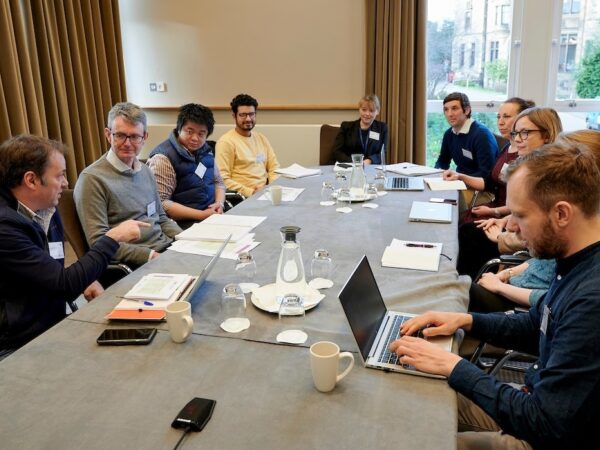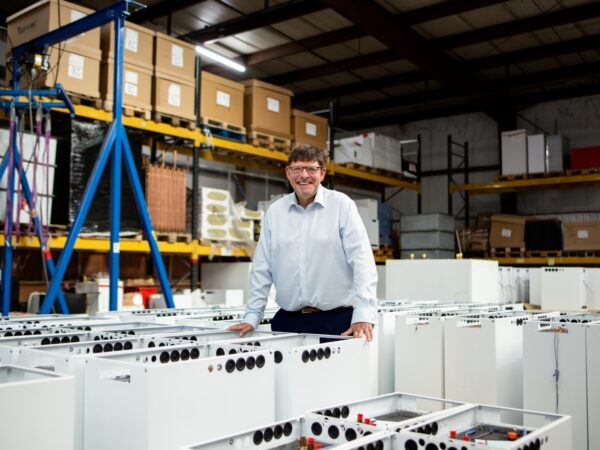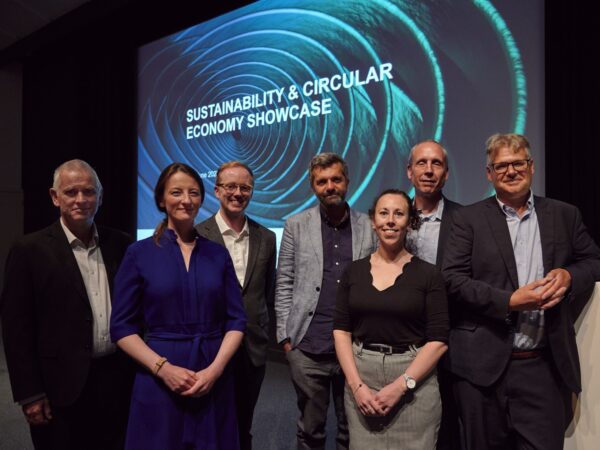Over 200 academics and industry partners came together at the National Museum of Scotland yesterday for Edinburgh Innovations’ annual showcase and dinner, this year on the theme of Digital Frontiers: data and digital technologies.
Academics presented their ground-breaking research on quantum technology, natural language processing and bioinspired robotics, for example, and discussed how it is being applied, through partnerships with private and public sectors, to address challenges in healthcare, ethics and sustainability.
Discussions hosted by Professor Michael Rovatsos, Personal Chair of Artificial Intelligence and Director of the Bayes Centre, and Professor Miguel Bernabeu, Personal Chair in Computational Medicine at the Usher Institute, ranged from how quantum is likely to change our lives (by revolutionising cryptography and enabling secure data sharing, for example); why robots are sometimes better modelled on squid and octopi than humans (it depends on the purpose) and how new medical technologies succeed (by bringing in social scientists early on!).
Dinner was hosted by Professor Iain Gordon, Head of the College of Science and Engineering, and celebrated event funders the Engineering and Physical Sciences Research Council (EPSRC)’s Impact Acceleration Account, which funds the translation of research into impact.
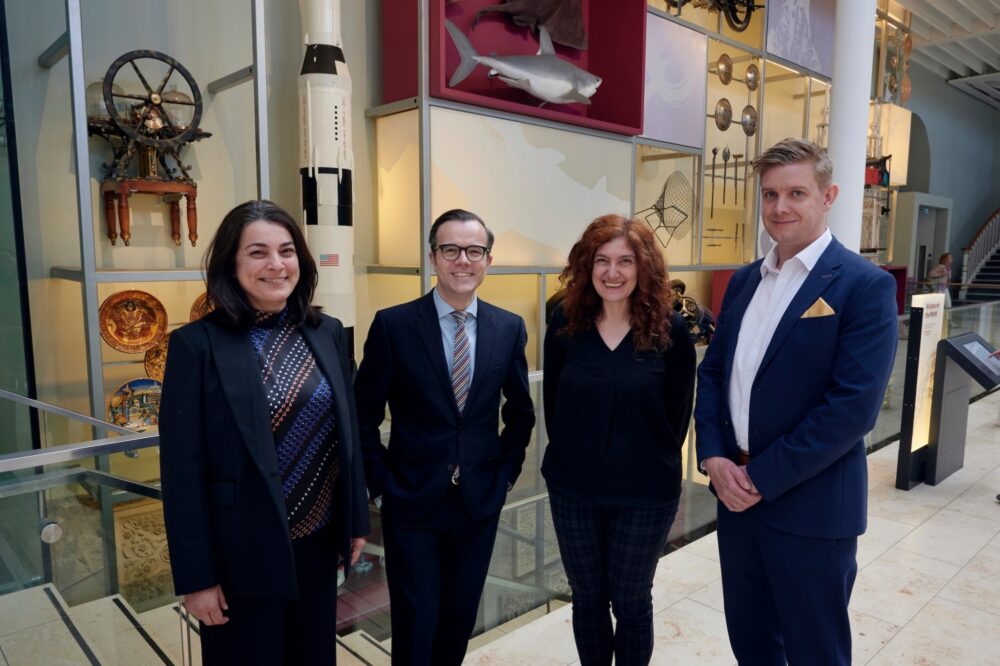
Picture: L-R Professor Elham Kashefi, Personal Chair in Quantum Computing; Professor Michael Rovatsos, Personal Chair in Artificial Intelligence; Professor Mirella Lapata, Personal Chair in Natural Language Processing and Professor Adam Stokes, Personal Chair in Bioinspired Engineering
Dr George Baxter, CEO of Edinburgh Innovations, the University’s commercialisation service, said:
The Digital Frontiers Showcase has again highlighted the centrality of innovation to the University of Edinburgh’s mission and vision.
The academic-industry collaborations demonstrated today, facilitated by Edinburgh Innovations, have provided many opportunities for cutting-edge research to have impact. By forging new partnerships, research at the frontiers of data and artificial intelligence can be stretched to find solutions to the world’s biggest challenges. ”
Professor Elham Kashefi (main picture and above) is Personal Chair in Quantum Computing in the School of Informatics and Chief Scientist of the UK’s new National Quantum Computing Centre. As a panel member, she was asked how businesses should think about quantum and replied:
Come and talk to us now in the Quantum Software Lab! It’s hard to imagine what we will need in 20 years’ time, but artificial intelligence is going to reach the limits of what’s possible and sustainable, and quantum is going to be the solution to that. But it won’t be ‘here’s a quantum computer, plug it in’. Start your journey now with us, get a quantum expert in your R&D department, start getting used to it. It’s not ‘if’ you’ll need quantum, it’s ‘when’. ”
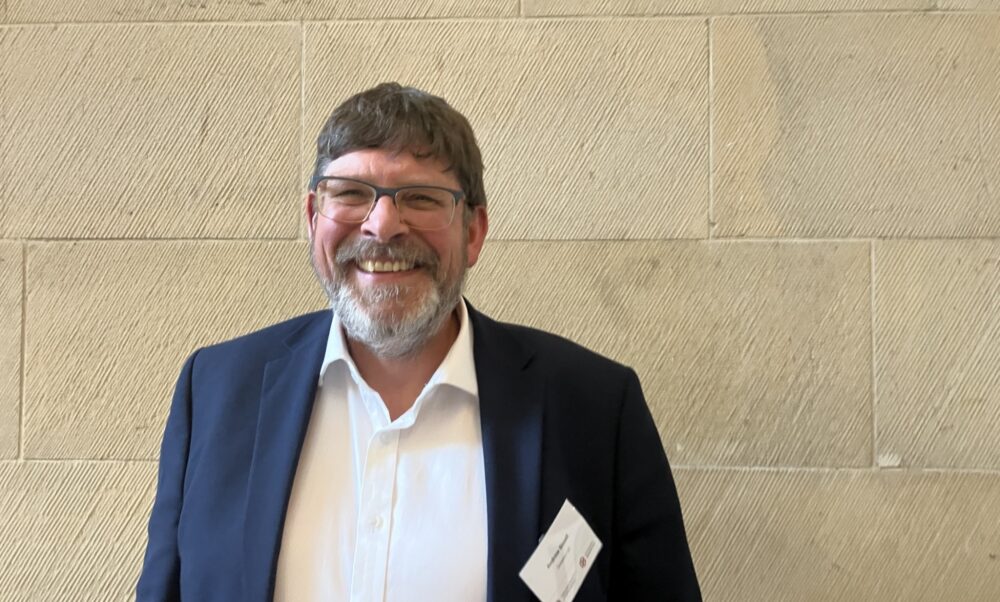
At the drinks reception, Andrew Bissell, CEO of thermal energy storage company Sunamp (pictured above), wasn’t thinking about quantum, but he was celebrating 12 years of working in collaboration with the University of Edinburgh’s School of Chemistry. He said: “Working with the University has been foundational to the success of our company. We started out with a problem: how do we take materials with promise for thermal energy storage and turn them from unstable into stable compounds, and the School of Chemistry helped us solve that.
“We started out through Interface, we had an EPSRC studentship, with Edinburgh Innovations we established intellectual property and collaboration agreements we still rely on today. As an SME we couldn’t have done it on our own. Last year we won the Royal Society of Chemistry’s Industry-Academic Collaboration prize, which we are immensely proud of.”
If you have an industry problem, why not send a question in advance and get suggestions on how to solve it from academics in different disciplines during our Digital Frontiers AIMDay on September 6, 2023.
